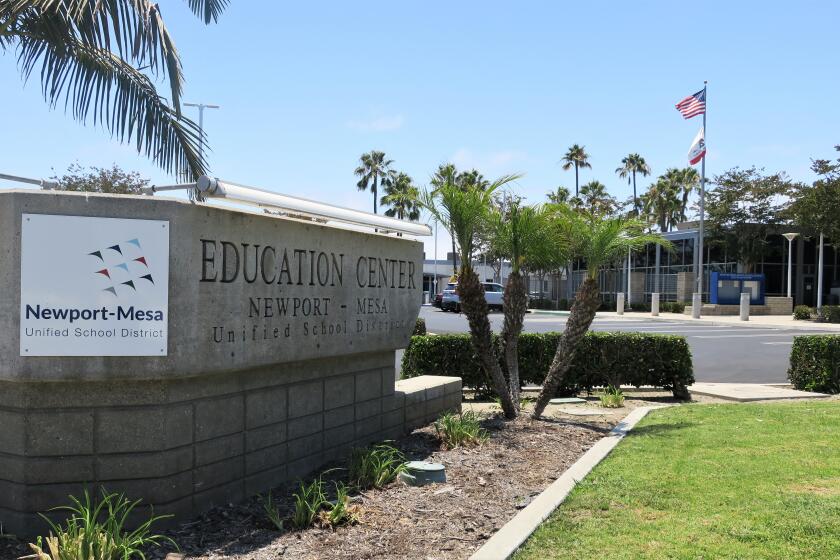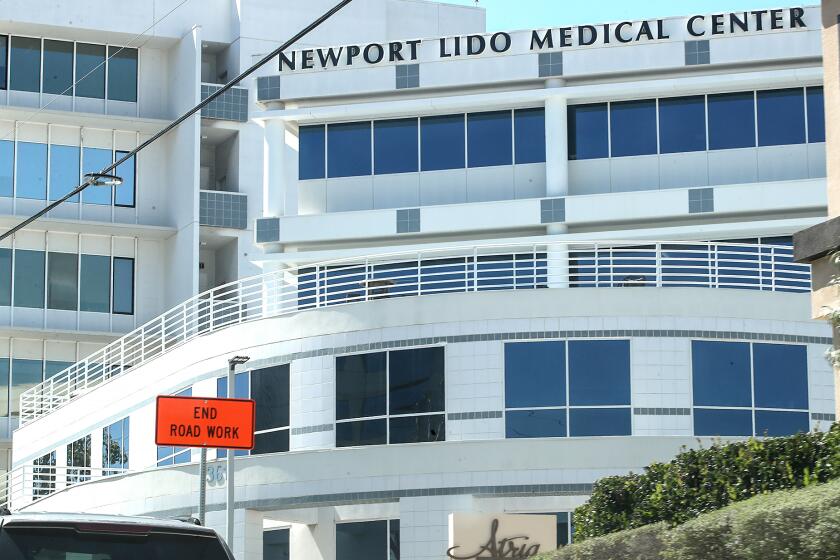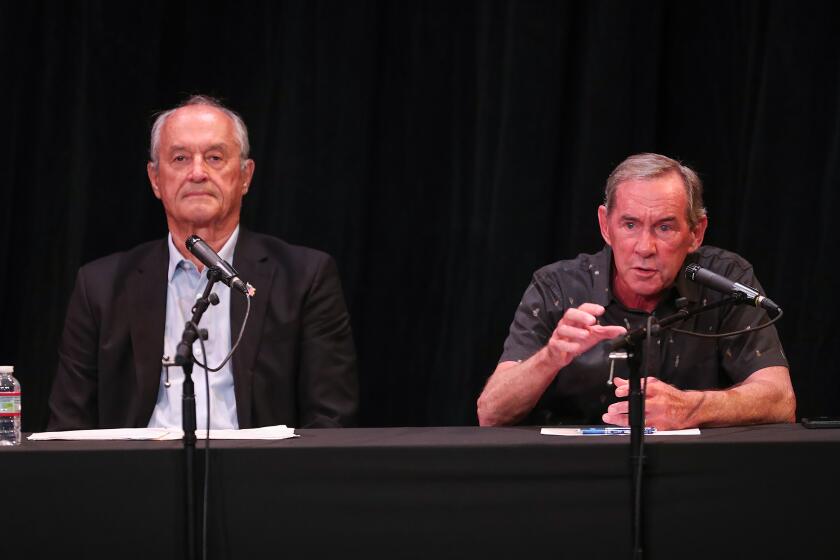Bracken’s Kitchen takes healthy meals to impoverished people
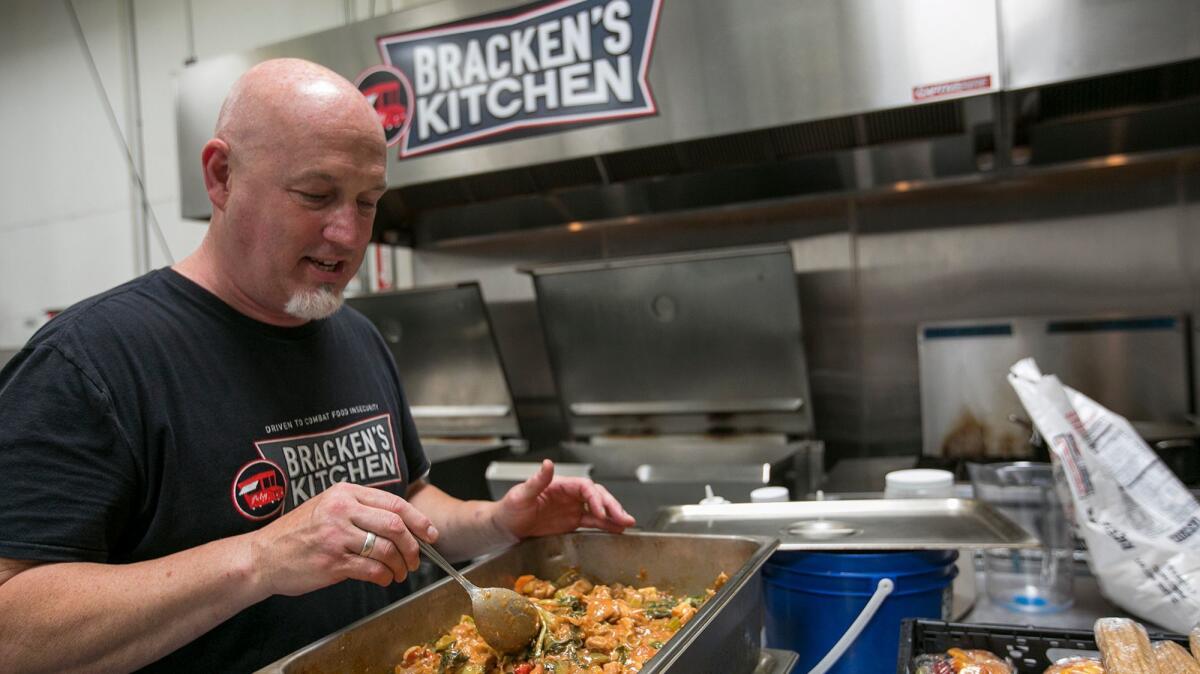
Bill Bracken picked up a spoon to stir a pot of stew.
“This was made completely from scratch,” he said, pointing to pieces of chicken, zucchini and bok choy. “It’s full of vegetables, it’s low-fat, low-calories, low-sugar — nothing processed at all. I made it yesterday.We let it set for 24 hours to really set the flavors and we’ll heat it up later.”
Bracken spent 25 years cooking at five-star luxury hotels for customers such as actor Sylvester Stallone and Hollywood filmmaker Ron Howard.
But today, he serves a different clientele.
The chef and founder of the Huntington Beach-based nonprofit Bracken’s Kitchen prepares more than 1,500 healthy meals each week for local homeless and needy families in what he sees as a new, chef-driven model combating food insecurity.
“America’s hunger relief programs have been built on the warehouse model of food banks and handing out boxes of food,” he said. “While it was great for many years, I believe very strongly that it’s time to change that.”
“Feeding people is not the same as nourishing them.”
Bracken started cooking at age 12, and after graduating from the Culinary Institute of America, he landed his first job at the Four Seasons Hotel in Dallas.
He later moved to Southern California, where, as a chef at the Peninsula Beverly Hills and the Four Seasons Hotel in Newport Beach, he rubbed elbows with actors, filmmakers and producers — and even had a cameo on the CBS TV show “Family Law.”
But everything changed with the recession.
“I watched a lot of really good people lose their jobs — friends of mine — and I watched them struggle just to put a meal on the table,” Bracken said.
In 2011, he lost his job and took it as a sign to change directions. He started developing a healthy restaurant that could serve low-income families, but quickly realized that a brick-and-mortar model would be ineffective.
“We kept landing on this problem that in Southern California, living in poverty, transportation is a real challenge,” he said. “If someone lives across Orange County and you’re offering them a free meal, but the only way to get there is by car, train, bus, whatever — it’s kind of difficult.”
Bracken decided to get a food truck so he could prepare food and go out to the different communities that need it.
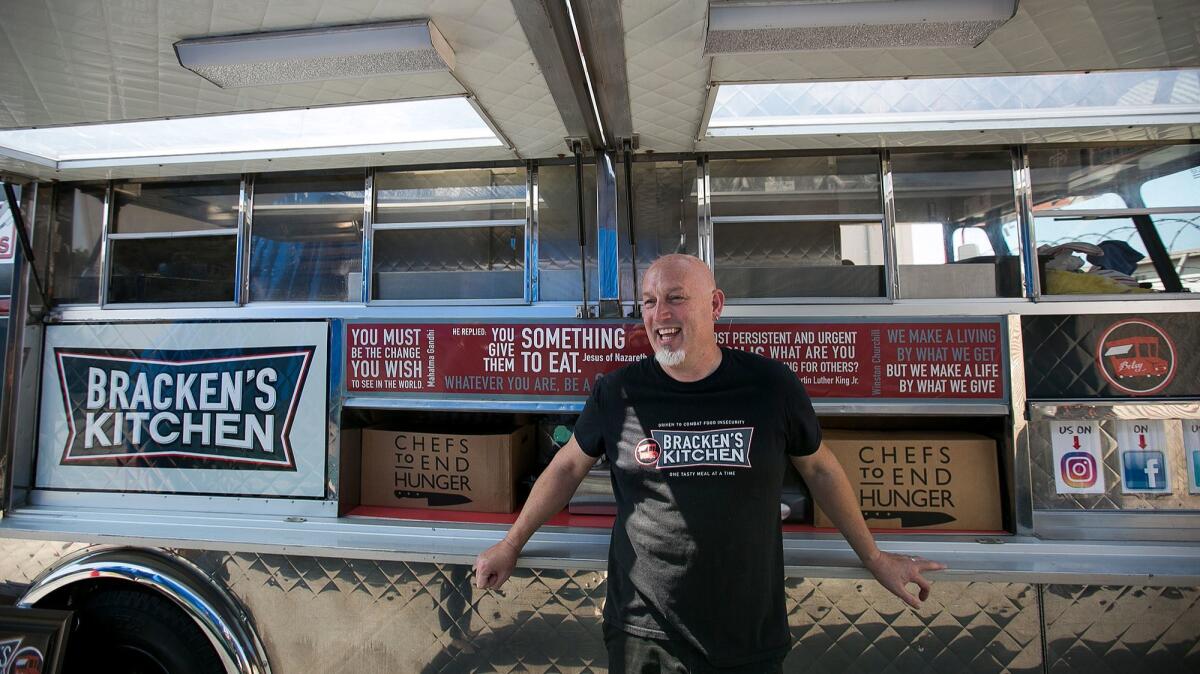
The Second Harvest Food Bank of Orange County estimates that more than 315,000 residents and one in five children are at risk of hunger.
In 2013, Bracken’s Kitchen was born.
By taking his food to the people, Bracken said he developed a deeper understanding of the communities he was trying to serve — and their specific needs — which he said is critical for any successful hunger relief program.
“I have some dear friends who are working for food banks, but there’s no connection between the boxed food that’s put together and the person who gets it,” he said. “You don’t know anything about that person, if they have a stove to cook on, do they have a kitchen, where are they from, what race are they, what age are they — anything.
“It’s just building relationships.”
Jerri Rosen, founder and CEO of the Irvine nonprofit Working Wardrobes, said she once partnered with Bracken so that her clients — many of whom are homeless veterans — would have the opportunity to eat a healthy, from-scratch dinner.
“For many of our clients, a home-cooked meal is not something they have every day,” she said. “So to be treated not just to a nutritious meal, but one that’s truly been cooked with love and kindness — and served that way — is as much a self-esteem boost as the services we provide.”
Krista Koch, a volunteer with Bracken’s Kitchen, agreed.
“Bill never brags about it, but people will say, ‘This is the best meal I’ve ever had,’” she said.
The way he gets his ingredients also is innovative.
Through the Los Angeles-based group Chefs to End Hunger, Bracken partners with local restaurants and food companies across the county to collect the excess food that is still perfectly good to eat, but otherwise would have been thrown away. He prepares it in a shared kitchen space in Huntington Beach.
This way, the food is far above standard soup kitchen fare. He’s gotten fresh vegetables, shrimp, soft shell crab, oysters and filet mignon.
“Not a whole lot of people feed filet mignon to the homeless and less fortunate,” he said. “When I look at the stuff we get I’m shocked to think it would have gone in the trash.”
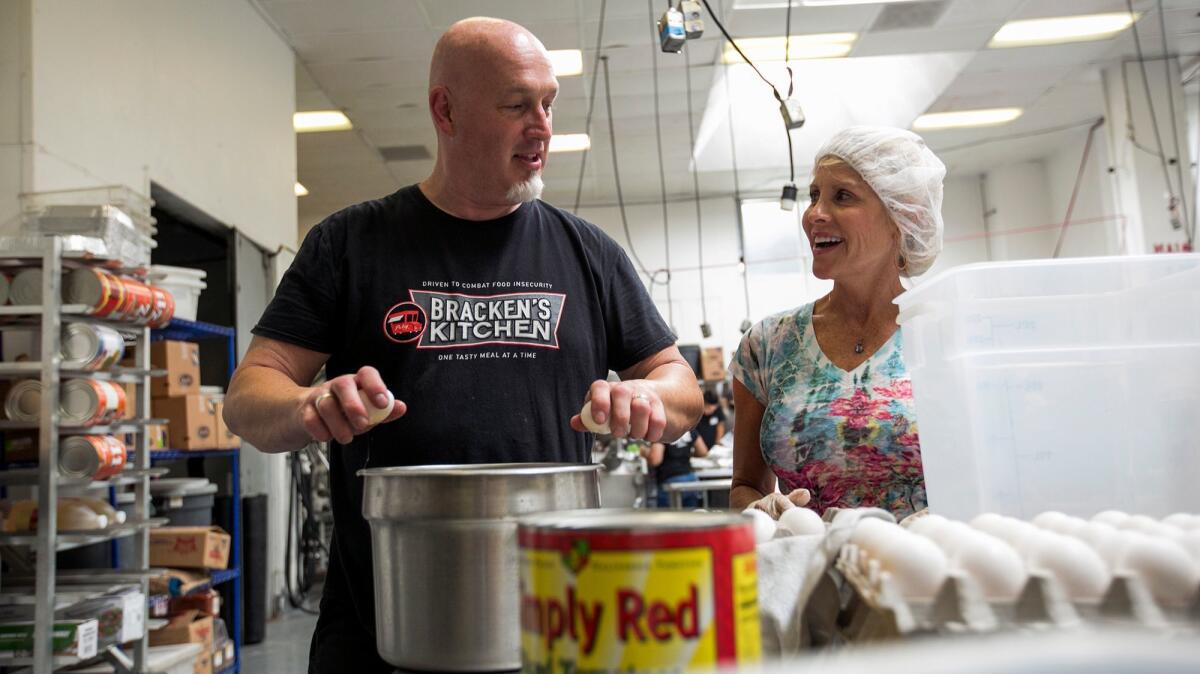
Bracken’s chicken stew, for example, was made from chickens donated by the Newport Meat Company, which he called “the finest pasture-raised chickens in America.”
George Yueh, senior vice president of sales and marketing for Newport Meat Company, explained that when products aren’t sold by their expiration date, they’re pulled from the shelves, even though they’re still safe and healthy to eat. Instead of throwing them away, Newport Meat Company donates to Bracken’s Kitchen.
“Food doesn’t need to be wasted,” Yeuh said.
According to the U.S. Department of Agriculture, 30 to 40% of the country’s food supply — 133 billion pounds and $161 billion worth — ends up in the garbage.
“America doesn’t have a food shortage problem like a third-world country where people are starving,” Bracken said. “We have a food waste problem.”
Bracken hopes that eventually other chefs will follow his lead and get out of the kitchen to be on the front lines in the fight against hunger.
“It’s 2017,” Bracken said. “Since when did a healthy, nutritious meal become a luxury in America?”
CAITLIN YOSHIKO KANDIL is a contributor to Times Community News.
All the latest on Orange County from Orange County.
Get our free TimesOC newsletter.
You may occasionally receive promotional content from the Daily Pilot.

